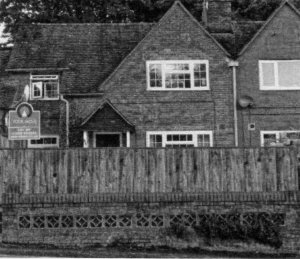Social Housing- an update - TrustNews Dec 15
Following my recent historical sweep, the aim of this article is to provide an update on housing policy for Trust members. As l said in the September newsletter, it is like trying to hit a moving target. l wrote the earlier piece in the summer, and much has changed, or at least is intended to change, since then. Now it is more like trying to board a fast-moving train, with likely resultant injury, at least for those at the receiving end of some of the proposed policies.
The subject has surged up the news agenda, so members will probably have read or heard something in the media. The thing to remember is that almost every policy change will impact harder on central Winchester where the average house price is now - according to the latest round-up from one of the estate agents* - £515,400. So affordability is a particularly keen issue here. And the city is home to some 6000 students in the university and school of art, large numbers of whom live in what were once council houses, particularly in Stanmore.
The Housing and Planning Bill passed its second reading on 10 November. The final date is not yet on the parliamentary website but it is intended to become law by April next year. Amendments are being made, so it's impossible to predict the end result.
The parliamentary website describes it in anodyne terms as "A Bill to make provision about housing, estate agents, rent charges (sic), planning and compulsory purchase." But beneath that description, many of the proposals are contentious. The one that has generated the most headlines is probably the extension of Flight to Buy to the housing association sector. A number of large associations have made a voluntary agreement with government over this, carrying most of the smaller, more reluctant, associations along in their wake. The associations will be recompensed with funds generated by forcing councils to sell their most valuable stock as it becomes vacant.
The definition of what constitutes high valuestock is still to be published, but it is not hard to imagine, unless it is on an entirely local basis, maybe even ward by ward, that most of Winchester's stock will be vulnerable. The Bill in fact allows for government to estimate the amount of money it should receive from a local authority each year, which must then be paid to the Treasury, whether or not the homes have been sold.
An appealing-sounding 1% reduction in rents charged is equally fraught. As far back as July, when the policy was first emerging, the Financial Times reported that the Of?ce for Budget Responsibility said the cut would lead to housing associations abandoning plans to build 14,000 new homes, while the National Housing Federation said the figure would be closer to 27,000. The professional journal Inside Housing has reported several commentators speculating whether this might lead to credit ratings being downgraded, affecting additionally the ability of the associations to borrow in order to build.
The latest twist, which may be resolved in either direction by the time this TrustNews arrives on your doorstep, is that the Office for National Statistics has declared that this unprecedented level of government intervention in the operations of what are mostly private charities means that housing associations should be classified as government bodies, transferring in one swoop the sector's £6bn debt to the government's national debt. Unsurprisingly the Treasury is not happy about this.
There is one very welcome element in the Housing and Planning Bill, and that is the proposal to tackle rogue landlords. I don't know whether these exist in Winchester, but there is at least one case of unconsented conversion to multi-occupancy, complete with ‘beds-in-sheds‘, where the council is talking of enforcement.
Another welcome proposal concerns the recovery of abandoned premises. There are not many of these in Winchester, but there is at least a handful, that could be brought back into use given the resources within the council. Rogue letting agents are also to be addressed.
There is also the matter of the s106 agreements, which featured in the last article. Then, although they were failing to deliver anything like the amount of social or affordable housing hoped for, they were at least current, and still feature in the council's Local Plan. Now, however, according to David Cameron's party conference speech in October, developers are to be freed of the obligation to provide affordable housing to rent in new developments. It is not immediately obvious whether this is integral to the Housing and Planning Bill, but it featured in The Government's July 2015 Productivity Plan, ‘ Fixing the Foundations: Creating a more prosperous nation’.

HMO: a possible enforcement case
photo courtesy of Hampshire Chronicle
Instead of the s106 agreements on rented housing, developers are to provide below-market-cost starter homes for sale. The market cap outside London is £250,000, and the maximum age for a first-home buyer to qualify is 40. Leaving aside what is to happen to those who will not qualify for a mortgage, or perhaps simply can't cope with home ownership - the blocked gutters, slipping slates and other challenges probably familiar to most Trust members - the proposal blows a potential hole in the intensively-prepared plans of all local authorities.
Frankly, it's hard to be optimistic about housing in England (the other parts of the UK have other dispensations) at the moment.
* Charters Market Insight, November 2015.
